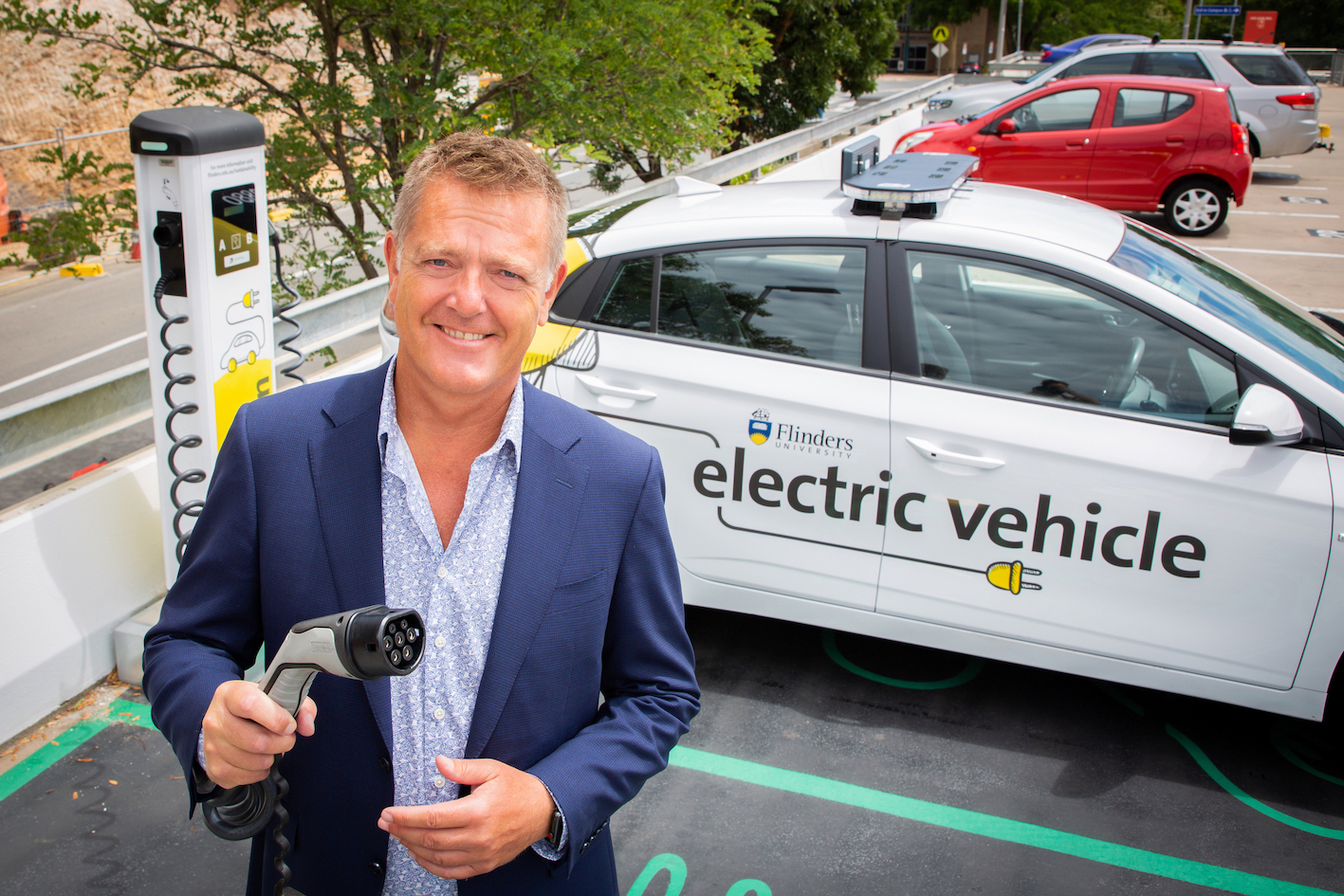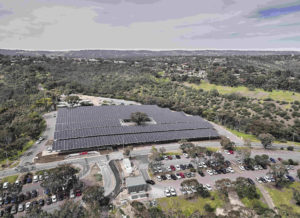
Flinders University is now powering its campuses and facilities with 100% renewable energy from campus-based solar arrays and a local windfarm, achieving net-zero emissions from electricity.
An innovative new electricity supply agreement across all of our South Australian campuses is part of a raft of bold renewable energy initiatives the University is implementing,
A five-year deal with global energy provider ENGIE, through its retail arm Simply Energy, guarantees the supply of electricity from one of the state’s largest renewable energy projects, the 119MW Willogoleche Wind Farm in South Australia’s mid-north.
The supply announcement complements existing investments in solar carpark and rooftop systems already generating 20% of electricity needs at our main campus.
Vice-Chancellor Professor Colin Stirling says Flinders University is rapidly moving towards becoming one of the first carbon positive tertiary institutions through a cost-effective range of renewable supply and storage projects.
“We’re delivering on commitments set out in our Sustainability Plan and this agreement will ensure electricity supply at Bedford Park, Tonsley and our regional campuses is sourced exclusively from renewable energy right here in South Australia, to complement existing solar electricity generated on campus.
“We’ve set a clear target on becoming carbon positive and this announcement demonstrates our ongoing commitment to champion sustainability by working with industry to address real world challenges.”
“Climate change is an important area of research at Flinders University and we are showing that we can ‘walk the talk’ when it comes to meaningful change in our energy operations.”

“Our Bedford Park campus currently generates 2.22MW of renewable energy from solar installations on building roof tops and car parks (including 4,136 panels over carpark 3), with more recent additions increasing that number to 7,467 panels, and we are continuously assessing future investments in renewable energy. We have also recently installed 13 new electric-vehicle charging stations and begun to transition our vehicle fleet to electric vehicles,” Professor Stirling says.
In addition to the supply arrangement, the University and ENGIE Australia & New Zealand will work together to investigate further ways to reduce emissions and achieve energy generation and storage targets.

